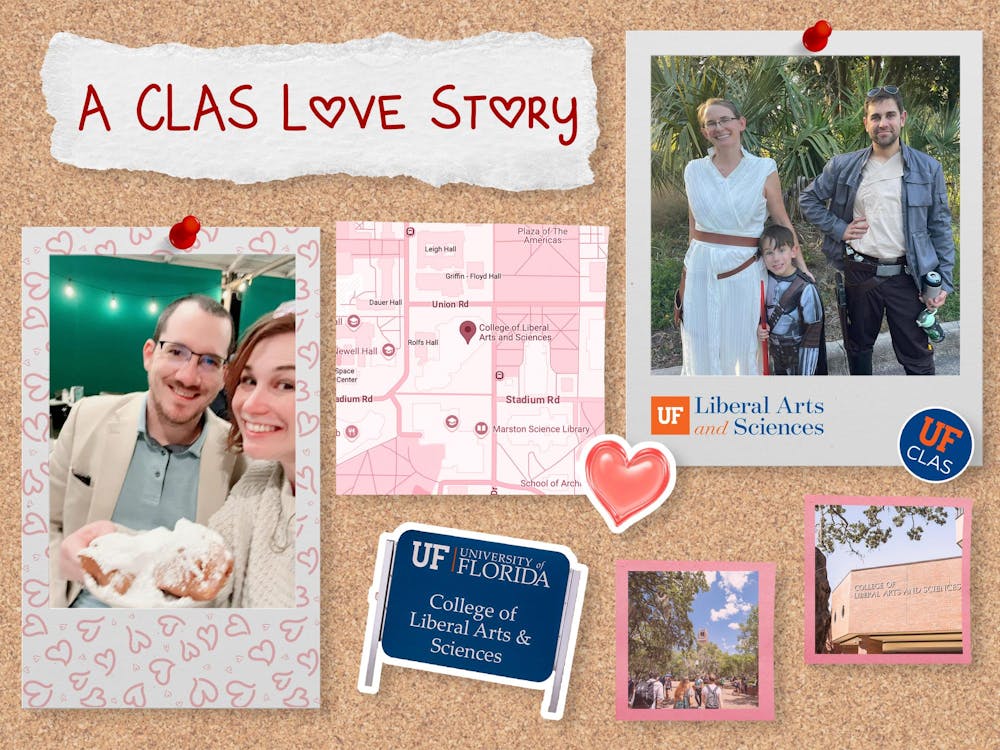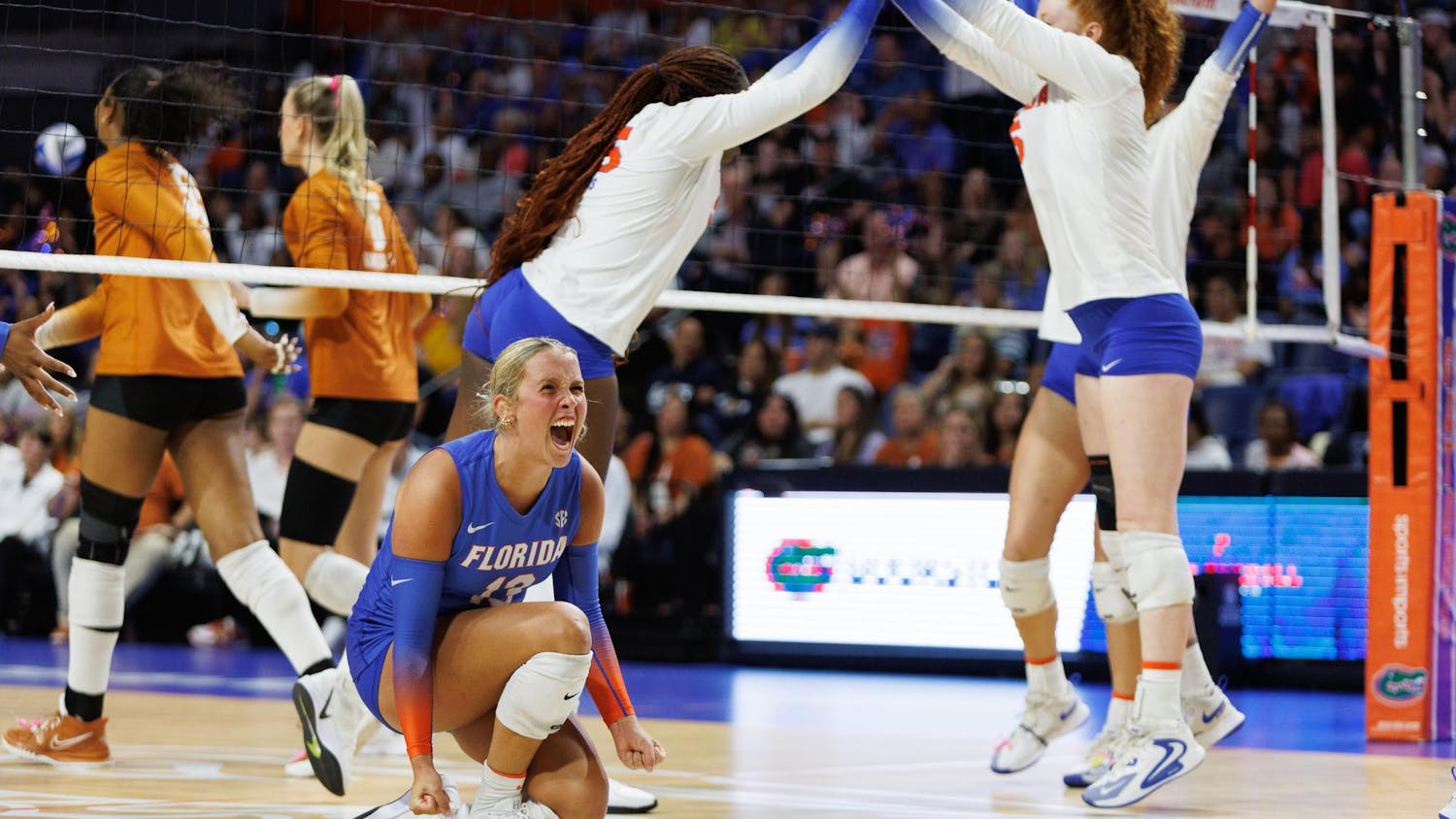Coffee, walks and an office across the hall were enough to spark something between Teresa Cornacchione and David Macdonald.
The UF professors’ love story started in early 2017 when the couple worked in offices across the hall from each other at Florida State University. Cornacchione would always pay a visit to Macdonald throughout the day to strike up conversation.
Cornacchione, 38 at the time, said before they started dating, her romantic gestures went over 32-year-old Macdonald’s head. When she would stop by his office asking to grab a cup of coffee, for example, he’d say, “Oh, I got coffee here.”
“I was very oblivious to these signals, mostly because she's very nice and cheerful with everybody,” Macdonald said. “It just wasn’t on my radar.”
After a hang out with friends on Feb. 15, 2017, Cornacchione’s affection dawned on Macdonald; he texted Cornacchione and they began talking.
Macdonald said one of his favorite memories from early on in the relationship was one of their routine walks to get coffee on FSU’s campus.
“That was the first time we held hands,” he said. “I was like ‘Oh, OK, all right. Nice.’”
Cornacchione, now 43 and Macdonald, 36, moved to Gainesville together in July 2020 after completing their doctoral degrees. Macdonald landed a job with the UF Institute of Food and Agricultural Sciences and Comacchione had already been working as a researcher for the state legislature for two years. They married later that year on Nov. 14, 2020 in the butterfly garden at the Florida Museum of Natural History on UF’s campus.
The pair eventually transferred to different jobs at the university: Macdonald became a political science professor and Cornacchione a lecturer at the Bob Graham Center for Public Service.
The pair once collaborated on a published research paper but discovered they had their own niche methods of study. They’ve since decided that academic teamwork isn't their love language.
”I love him very much,” Cornacchione said, “I will never write a paper with him ever again.”
Love blossomed a little differently for Amy Williams, an associate professor in geological sciences, and Stephen Elardo, an assistant professor in the same department.
The couple first crossed paths at the University of New Mexico while pursuing their master’s degrees. But the spark started even earlier — before they’d even met in person.
“I remember very distinctly running across Amy on Facebook and seeing her profile picture and being like, ‘Oh, she's cute,’” Elardo said.
That initial crush turned into a relationship that survived a three-and-a-half-year stretch of 1,094 miles when Williams pursued her doctoral degree at the University of California at Davis, and Elardo stayed in New Mexico.
Williams fondly remembers seeing Elardo after their stints of physical separation.
She said every time she eagerly watched him go down the escalator in the waiting area of the airport, smiles and excitement exuded from both of them.
“We're just smiling at each other like dummies,” Williams said. “The joy of getting to see someone that you love that you didn't get to see all the time — that was really powerful.”
Elardo agreed: “It kept the relationship really fresh and exciting and new for a much longer period of time than it would have otherwise. That was a lot of fun.”
The couple reunited in Baltimore, where they both pursued postdoctoral positions. When Elardo applied for a faculty job at UF, he inquired about a spousal accommodation — and soon after, both had job offers. Their situation is what’s commonly known in academia as the “two-body problem” where dual-career couples struggle to find positions at the same institution.
In his fourth year of being a postdoc, Elardo searched for faculty positions at different institutions.
“I like to call it a ‘two-person opportunity’ or ‘dual career’ because I don't like the idea that we're a problem,” Williams said.
Within academia, the couple is collaborating on a follow up study about a paper UF wrote about lunar plants, where plants were grown in lunar soil. Elardo is one of the three authors on this study, and Williams’ students are helping work on the project.
“I think the only other thing we've collaborated on is a child,” Elardo said.
Contact Sofia Meyers at smeyers@alligator.org. Follow her on X @SofiaMeyer84496
Sofia Meyers is a second-year journalism major and the university general assignment reporter. When she is not reporting, she enjoys taking walks, reading books and playing pickle ball.






